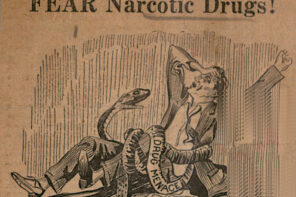As Jennifer Scheper Hughes’ recent article (“Narco-Violence and the Failure of the Church in Mexico”) rightly points out, the Catholic Church’s institutional abandonment of Liberation Theology has become a serious obstacle in mounting a relevant, systematic, and effective religious response to Mexico’s drug war.
But amidst the bloody carnage, is there cause for hope that the Church might yet offer prophetic, socially engaged answers to the current crisis? Mexico’s history might provide some reasons for cautious optimism, despite the very real danger that brutal violence has indeed become “naturalized and routinized” as Scheper Hughes adroitly articulates.
Historical assessments of the social potency of the Mexican Church often begin with post-Vatican II Liberation Theology and ignore prior dynamic social movements. In fact, it is the resiliency of earlier Catholic social movements in the face of government repression and conservative Church reaction that gives us cause to hope in Mexico’s present troubles.
In the late-nineteenth and early-twentieth centuries Catholic activists marshaled cogent progressive social reforms in response to Mexico’s rapid industrialization and urbanization. An overhaul of the agrarian sector, indigenous integration, and literacy campaigns figured among the platform of these so-called “social Catholics.” What is more, it was papal social teaching that supported and inspired Mexican Catholics to work for social justice.
But an interesting pattern emerges in Mexico’s Catholic history. Both Church-State conflict and a Church hierarchy desirous to reign-in radical activism by the laity have repeatedly interrupted movements of social reformism. Such was the case for the Catholic social activists in the 1910s and 1920s, as well as the liberationist movement of the 1970s and 1980s. Yet despite the disruption of the 1920s, a new generation of Catholic social activists re-grouped and helped shape the progressive movement of the 1970s and 1980s. Might not the same pattern hold true for contemporary Mexico? A brief resume of Mexico’s Catholic social history might illumine the current situation.
Early twentieth century social Catholics briefly co-existed with the democratic Revolution of 1910 led by Francisco I. Madero. However, Catholic support for General Victoriano Huerta’s coup d’état, and the anticlerical backlash by the revolutionaries that it provoked, inflamed pre-existing Church-state antagonism.
By the early 1920s, Church and state once again promoted similar social reforms, especially in the area of education and labor organization. But anticlericalism had become a core component of the new Revolutionary state, and tensions exacerbated by the administration of President Plutarco Elías Calles finally erupted in all out civil war between 1926-1929. The Catholic crusade to topple the anticlerical government ended in disaster: 250,000 soldiers, pro-Church guerillas, and civilians perished. A 1929 peace accord put an end to the violence; the Vatican and a new moderate archbishop of Mexico pushed conciliation with the government and sought to pacify the Catholic militants.
Thus, after 1929 the combination of a religious civil war and the Catholic hierarchy’s efforts at moderation had conspired to squash the social Catholic movement. Church officialdom desired to channel Catholic energies away from anything that might aggravate the tentative modus vivendi with the Mexican state. Anything that smacked of social radicalism was therefore prohibited. Until, that is, a new generation of Catholic progressives again mobilized to confront Mexico’s endemic poverty and inequality. Among this generation was the young Sergio Méndez Arceo, the future archbishop of Cuernavaca and prophetic defender of Mexico’s poor in the 1970s and 1980s.
Is there cause to hope that the Church in Mexico might address the economic and social bases of narco-violence? What Mexico’s history appears to confirm is that reform and reaction often come in frustrating cycles. Social Catholics of the early twentieth century suffered defeat both from revolutionary violence, as well as from conservative moderates in the Church hierarchy. But just a generation later the liberationist movement led by the likes of don Sergio Méndez Arceo spoke prophetically against the social bases of institutionalized violence in Mexico.
Unfortunately, conservative forces in the Mexican Church and in Rome (such as then Cardinal Josef Ratzinger and now current Pope Benedict XVI) stifled the movement, silencing the social radicals.
At present, many Church leaders in Mexico are perpetuating this conservative turn. The traditionalist ethos among Mexico’s prelates is often manifested in concern for fighting the culture wars, instead of fighting narco-violence. For instance, Father Hugo Valdemar, spokesman for the archdiocese of Mexico, accused Mexico City’s recent abortion law of killing more innocents than the drug cartels, implicating Mayor Marcelo Ebrard’s administration along the way. Ebrard promptly sued the cleric and the row continues.
The culture wars, just as with Church-state conflict in the 1920s, are having a profound ability to distract Catholics from confronting the social and economic bases of drug-violence in Mexico. But history, perhaps, leaves room for a bit of optimism. Although the Catholic project for social justice in Mexico might be interrupted, hope might already be rising with a new generation.




